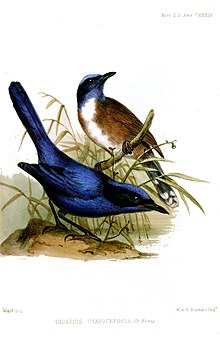
Wagtails are a group of passerine birds that form the genus Motacilla in the family Motacillidae. The common name and genus name are derived from their characteristic tail pumping behaviour. Together with the pipits and longclaws they form the family Motacillidae.
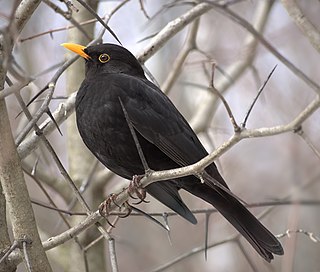
True thrushes are medium-sized mostly insectivorous or omnivorous birds in the genus Turdus of the wider thrush family, Turdidae. The genus name Turdus is Latin for "thrush". The term "thrush" is used for many other birds of the family Turdidae as well as for a number of species belonging to several other families.

Coracias is a genus of the rollers, an Old World family of near passerine birds related to the kingfishers and bee-eaters. They share the colourful appearance of those groups, blues and browns predominating. The two outer front toes are connected, but not the inner one.
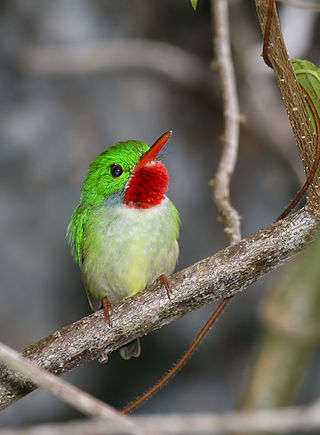
Todus is a genus of birds found in the Caribbean. It is the only genus within the todies family Todidae. The five species are small birds of the forests of the Greater Antilles: Puerto Rico, Jamaica, and Cuba, with adjacent islands, have one species each, and Hispaniola has two, the broad-billed tody in the lowlands and the narrow-billed tody in the highlands.
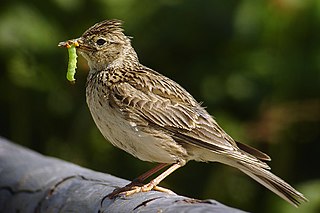
Alauda is a genus of larks found across much of Europe, Asia and in the mountains of north Africa, and one of the species endemic to the islet of Raso in the Cape Verde Islands. Further, at least two additional species are known from the fossil record. The current genus name is from Latin alauda, "lark". Pliny the Elder thought the word was originally of Celtic origin.
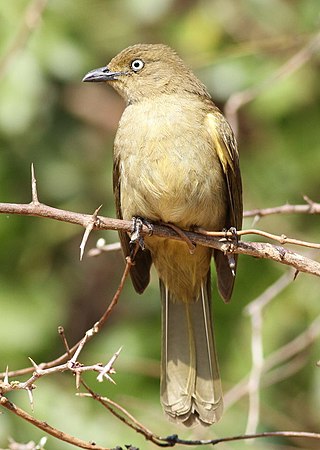
The sombre greenbul is a member of the bulbul family of passerine birds. It is a resident breeder in coastal bush, evergreen forest and dry shrub land in eastern and southern Africa. It is the only member of the genus Andropadus.
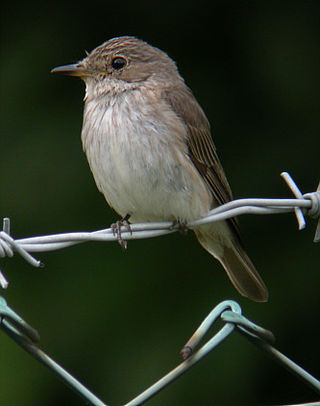
Muscicapa is a genus of passerine birds belonging to the Old World flycatcher family Muscicapidae, and therein to the typical flycatchers of subfamily Muscicapinae. They are widespread across Europe, Africa and Asia with most species occurring in forest and woodland habitats. Several species are migratory, moving south from Europe and northern Asia for the winter.

Ammomanes is a genus of lark in the family Alaudidae.

Gray's lark is a species of lark in the family Alaudidae. It is found in south-western Africa in its natural habitat of hot deserts.
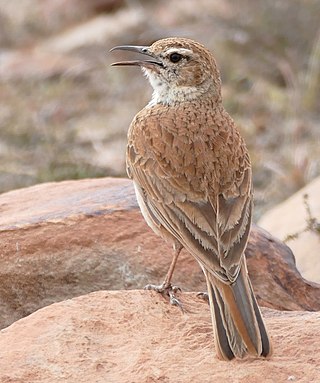
Certhilauda is a genus of larks in the family Alaudidae living in the southern regions of Africa. The genus was formerly named Heterocorys.

Hypsipetes is a genus of bulbuls, songbirds in the family Pycnonotidae. Most of its species occur in tropical forests around the Indian Ocean. But while the genus is quite diverse in the Madagascar region at the western end of its range it does not reach the African mainland.
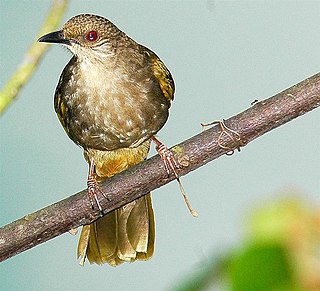
Pycnonotus is a genus of frugivorous passerine birds in the bulbul family Pycnonotidae.
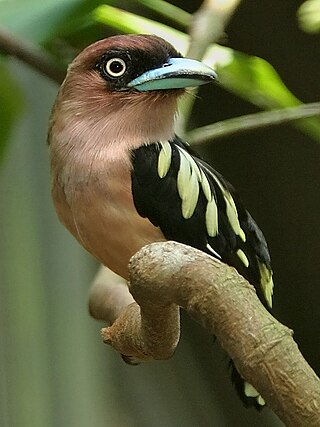
Eurylaimus is a genus of broadbills found in Southeast Asia.
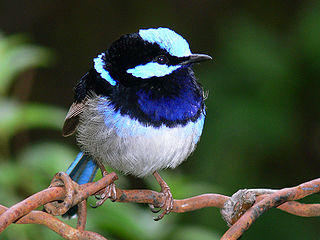
Malurus is a genus of bird in the Australasian wren family, Maluridae.

The lovely fairywren, or lovely wren, is a species of bird in the Australasian wren family, Maluridae. It is endemic to northeastern Australia. Its natural habitats are subtropical or tropical dry forest and subtropical or tropical moist lowland forest.

The emperor fairywren is a species of bird in the Australasian wren family, Maluridae. It is found in New Guinea in its natural habitat of subtropical or tropical moist lowland forests. It is the largest species of fairywren. It is highly sexually dimorphic. Males have a blue and black plumage, with the females having blue and black plumage only on their heads, with the rest of the body being coloured a rusty brown and having a black tail tipped with white. There are 3 recognized subspecies of the emperor fairywren, one from north and northwestern New Guinea, one from Biak Island, and one from south New Guinea and the Aru Islands.
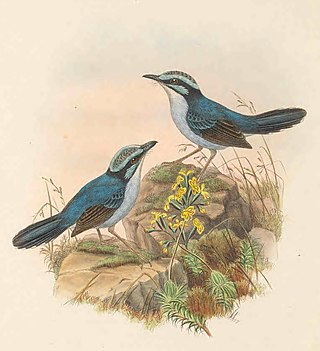
The broad-billed fairywren is a species of bird in the Australasian wren family, Maluridae. It is found in northern and north-western New Guinea. Its natural habitat is subtropical or tropical moist lowland forests.
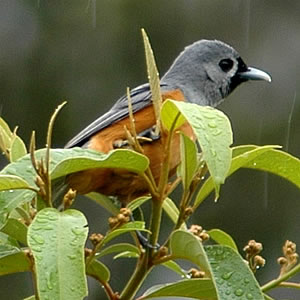
Monarcha is a genus of bird in the family Monarchidae. They are found in Australia and Melanesia.

Myiagra is a genus of passerine birds in the family Monarchidae, the monarch flycatchers, native to Australasia, sometimes referred to as the broad-billed flycatchers or simply broadbills.

Chenorhamphus is a genus of birds in the Australasian wren family, Maluridae.
